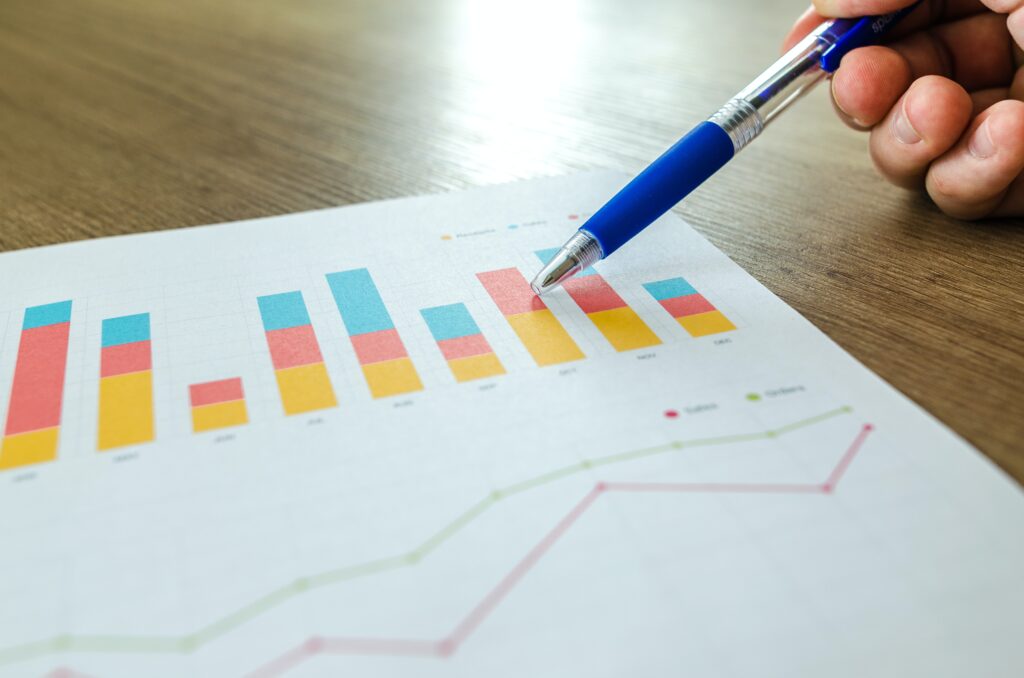
Imagine being able to transform raw data into actionable insights, shaping the direction of your business and your daily life. This power lies in understanding and applying statistics – the foundation of informed decision-making, the catalyst for impactful change and the key to unraveling the complexities of our world.
Cindy van Es, professor of practice at Cornell’s Dyson School of Applied Economics and Management and author of the Business Statistics certificate program, is expanding our comprehension of the study of statistics and its practical application in diverse fields. From agriculture to digital analytics, her work equips us with tools to navigate the complexity of both the corporate realm and our everyday lives, with statistics as our guide. Van Es shared her insights in the Keynote webcast “Statistics: What Everyone Should Know.”
How has statistics changed over the years?
“There are so many things after teaching it all these years, but . . . it’s present in every field these days. Even when I was going through education, it was very much the scientists, but it’s moved into so many fields now. The explosion I’ve seen over my career, from the very quantitative fields, to now: Every field has a metric. So it’s good to have a little idea of what goes behind some of these things.”
What are some surprising ways statistical information is used?
“When I think about the kinds of jobs my former students have now, they work for Airbnb, or Expedia, or Hilton or in finance. Even in marketing, now: A lot of stores will track your eyes . . . to see how long you look at a product, and they can correlate that data with the scanner data to see whether you bought it or not, and did the red label make you buy it more than the blue label . . . . There are experiments going on all around you, even when you’re not aware of it. Maybe you work in a nonprofit and you’re doing an amazing job, and it’s a very meaningful project, but in order to get funding, you may have to quantify why it’s amazing: What are the outcomes, and what are the metrics? There’s so much now: It’s kind of ubiquitous.”
Which type of statistics is the most challenging to learn?
“Statistics has two branches: Descriptive and inferential. Descriptive is when you take a sample, you describe what you have and you ask the questions: Do I want to make a graph of this? Or do I want to make a table? Or calculate what we call ‘summary statistics?’ Most people are pretty good at that. Inferential is where you want to make an inference about a broader group, about a population. If you see a poll in the news, you’ll see a little plus-or-minus margin of error. That’s because they’re doing inferential statistics. When you see ‘this percent of people in the country think this,’ it’s based on a sample – so what you’re doing is making an inference. That part of statistics is a little harder for students and people in general, I think, because first of all, the language of inference is probability . . . understanding risk, understanding probabilities, the human mind really doesn’t think that way. So inferential is usually more challenging.”
Is artificial intelligence being used in statistical processes and interpretation of data?
“Each new technology – computers, and then supercomputers, and then desktops – influenced how people teach statistics and use techniques . . . . Now the merger is more with computer science and info science, as opposed to just being applied to agriculture, or medicine, or biology. Now the whole discipline is merging. Statistics hasn’t caught up with how to use [artificial intelligence] yet . . . statisticians are just starting to look at it.”
Harness the power of data interpretation in Cornell’s Business Statistics online certificate program. You’ll develop a dynamic set of skills that can heighten your confidence, fortify your decision-making, and catalyze meaningful change.
Drafted by eCornell writing intern Milan Lengyeltoti, with first round edits from marketing intern Justin Heitzman.

Torie Anderson

Latest posts by Torie Anderson (see all)
- Executive guides emerging HR leaders, with inspiration from Cornell certificate programs - May 6, 2025
- Ukrainian educator gains nation-rebuilding skills with eCornell - February 11, 2025
- Cornell Keynotes podcast: How to transition to management - December 6, 2024